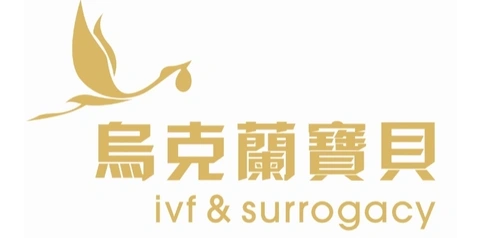试管婴儿IVF的视频过程
The Menstrual Cycle and In Vitro Fertilization (IVF): A Solution for Infertility
Section titled “The Menstrual Cycle and In Vitro Fertilization (IVF): A Solution for Infertility”https://www.youtube.com/watch?v=awjxMpP3Wh8
The menstrual cycle of fertile women usually lasts about a month. During this time, under the influence of the body’s own natural hormones, a tiny sack within the ovary containing an egg grows to about the size of a grape. At a point midway in the cycle, this egg is released from the ovary and ovulation occurs. Ovulation is also regulated by hormones. The egg, which from this moment on is ready for fertilization, then passes into the uterine tubes to await the arrival of fertile sperm.
Ovulation is a naturally occurring event and the desire to have children is a similarly natural instinct. However, that instinct cannot always be fulfilled. The causes of unwanted childlessness are numerous, but fortunately, there are means of treating them. One such technique is in vitro fertilization (IVF).
What is In Vitro Fertilization (IVF)?
Section titled “What is In Vitro Fertilization (IVF)?”In vitro fertilization (IVF) involves removing several eggs from the ovary for fertilization in the laboratory. After a few days, one or two of these fertilized eggs, now known as embryos, are returned to the uterus in the hope that they implant and become a pregnancy.
Women undergoing IVF are given special reproductive hormones to encourage several eggs to develop in the ovaries. The final maturation of the egg itself is induced by the administration of a further hormone 36 hours later. Fluid containing the eggs is drawn from the ovary with a needle, usually performed under light sedation in a short outpatient procedure with the doctor using ultrasound to check proceedings.
The eggs collected from the ovary are then mixed with a sample of the male partner’s sperm, which has already been washed and concentrated. The eggs and sperm are left in an incubator set at 37 degrees for 24 hours so that fertilization can take place. During this time, only one of the many sperm cells will penetrate the outer layer of the egg and achieve fertilization.
The Formation of an Embryo and Pregnancy
Section titled “The Formation of an Embryo and Pregnancy”Following fertilization, the cells divide and multiply to form an embryo. After two or three days, a healthy embryo will comprise around 8 cells. It is then transferred to the uterus by means of a thin flexible tube, where it is left to implant and form a pregnancy.
All these methods of assisted reproduction offer couples a good chance of bringing a healthy baby into the world. However, it is important for each individual patient to undergo a consultation and thorough examination in order to find the most appropriate treatment with the highest chance of success.
Female fertility decreases quite quickly after the age of 35, so infertile couples should not delay seeking appropriate medical advice.
Conclusion
Section titled “Conclusion”In vitro fertilization (IVF) has proven to be a successful solution for many couples struggling with infertility. By understanding the menstrual cycle and utilizing reproductive hormones, eggs can be collected, fertilized in a laboratory setting, and then transferred to the uterus to form a pregnancy.
It is important for couples experiencing infertility to seek appropriate medical advice as soon as possible. With advancements in assisted reproduction techniques like IVF, the dream of having a child can become a reality.
月经周期和体外受精(IVF):不孕症的解决方案
Section titled “月经周期和体外受精(IVF):不孕症的解决方案”育龄妇女的月经周期通常持续大约一个月。在此期间,在体内自然激素的影响下,卵巢内含有卵子的小囊肿会长到葡萄的大小。在周期的中点,这个卵子从卵巢中释放,发生排卵。排卵也是由激素调控的。从此刻起准备受精的卵子,然后进入子宫管等待精子的到来。
排卵是一种自然发生的事件,生育孩子的愿望也是一种同样自然的本能。然而,这种本能并不能总是得到满足。不孕症的原因有很多,但幸运的是,有治疗的方法。其中一种技术就是体外受精(IVF)。
什么是体外受精(IVF)?
Section titled “什么是体外受精(IVF)?”体外受精(IVF)涉及到从卵巢中取出几个卵子,在实验室中受精。几天后,这些受精卵,现在称为胚胎,有一个或两个被移入子宫,希望它们能着床并形成妊娠。
接受IVF的妇女会被给予特殊的生殖激素,以鼓励卵巢中的几个卵子发育。通过进一步给予激素,36小时后引发卵子的最终成熟。含有卵子的液体通过一根针从卵巢抽出,通常在轻度麻醉下进行短暂的门诊手术,医生使用超声波来检查手术进程。
从卵巢收集的卵子然后与男性伴侣的精子样本混合,这些精子已经被洗涤和浓缩。卵子和精子在设定为37度的孵化器中放置24小时,以便受精可以进行。在此期间,只有一个精子细胞会穿透卵子的外层并实现受精。
胚胎的形成和怀孕
Section titled “胚胎的形成和怀孕”受精后,细胞分裂并增多,形成胚胎。在两到三天后,一个健康的胚胎将包含大约8个细胞。然后通过一根薄而柔软的管子将其转移到子宫,以便着床并形成妊娠。
所有这些辅助生殖方法为夫妇带来了生育一个健康婴儿的良好机会。然而,每个个体患者都需要经过咨询和全面检查,以找到最合适的治疗方法,获得最大的成功机会。
女性生育能力在35岁后会很快下降,所以不孕夫妇不应该延迟寻求适当的医疗建议。
体外受精(IVF)已经被证明是许多不孕夫妇的成功解决方案。通过理解月经周期和利用生殖激素,卵子可以被收集,实验室中受精,然后转移到子宫形成怀孕。
对于经历不孕症的夫妇,尽快寻求适当的医疗建议非常重要。随着辅助生殖技术如IVF的进步,生育孩子的梦想可以变为现实。
我们提供专业的代孕建议,需要海外代孕,合法代孕的朋友 请联系 微信:haydonge 或 Bellaliuliu: 邮件:haydonge@gmail.com 乌克兰代孕:www.wkldy.com 格鲁吉亚代孕:www.geoivf.com 哈萨克斯坦代孕:www.kazivf.com date: 2023/11/15 type: Post status: Published slug: ivf-video summary: 试管婴儿,试管婴儿的流程
The Menstrual Cycle and In Vitro Fertilization (IVF): A Solution for Infertility
Section titled “The Menstrual Cycle and In Vitro Fertilization (IVF): A Solution for Infertility”https://www.youtube.com/watch?v=awjxMpP3Wh8
The menstrual cycle of fertile women usually lasts about a month. During this time, under the influence of the body’s own natural hormones, a tiny sack within the ovary containing an egg grows to about the size of a grape. At a point midway in the cycle, this egg is released from the ovary and ovulation occurs. Ovulation is also regulated by hormones. The egg, which from this moment on is ready for fertilization, then passes into the uterine tubes to await the arrival of fertile sperm.
Ovulation is a naturally occurring event and the desire to have children is a similarly natural instinct. However, that instinct cannot always be fulfilled. The causes of unwanted childlessness are numerous, but fortunately, there are means of treating them. One such technique is in vitro fertilization (IVF).
What is In Vitro Fertilization (IVF)?
Section titled “What is In Vitro Fertilization (IVF)?”In vitro fertilization (IVF) involves removing several eggs from the ovary for fertilization in the laboratory. After a few days, one or two of these fertilized eggs, now known as embryos, are returned to the uterus in the hope that they implant and become a pregnancy.
Women undergoing IVF are given special reproductive hormones to encourage several eggs to develop in the ovaries. The final maturation of the egg itself is induced by the administration of a further hormone 36 hours later. Fluid containing the eggs is drawn from the ovary with a needle, usually performed under light sedation in a short outpatient procedure with the doctor using ultrasound to check proceedings.
The eggs collected from the ovary are then mixed with a sample of the male partner’s sperm, which has already been washed and concentrated. The eggs and sperm are left in an incubator set at 37 degrees for 24 hours so that fertilization can take place. During this time, only one of the many sperm cells will penetrate the outer layer of the egg and achieve fertilization.
The Formation of an Embryo and Pregnancy
Section titled “The Formation of an Embryo and Pregnancy”Following fertilization, the cells divide and multiply to form an embryo. After two or three days, a healthy embryo will comprise around 8 cells. It is then transferred to the uterus by means of a thin flexible tube, where it is left to implant and form a pregnancy.
All these methods of assisted reproduction offer couples a good chance of bringing a healthy baby into the world. However, it is important for each individual patient to undergo a consultation and thorough examination in order to find the most appropriate treatment with the highest chance of success.
Female fertility decreases quite quickly after the age of 35, so infertile couples should not delay seeking appropriate medical advice.
Conclusion
Section titled “Conclusion”In vitro fertilization (IVF) has proven to be a successful solution for many couples struggling with infertility. By understanding the menstrual cycle and utilizing reproductive hormones, eggs can be collected, fertilized in a laboratory setting, and then transferred to the uterus to form a pregnancy.
It is important for couples experiencing infertility to seek appropriate medical advice as soon as possible. With advancements in assisted reproduction techniques like IVF, the dream of having a child can become a reality.
月经周期和体外受精(IVF):不孕症的解决方案
Section titled “月经周期和体外受精(IVF):不孕症的解决方案”育龄妇女的月经周期通常持续大约一个月。在此期间,在体内自然激素的影响下,卵巢内含有卵子的小囊肿会长到葡萄的大小。在周期的中点,这个卵子从卵巢中释放,发生排卵。排卵也是由激素调控的。从此刻起准备受精的卵子,然后进入子宫管等待精子的到来。
排卵是一种自然发生的事件,生育孩子的愿望也是一种同样自然的本能。然而,这种本能并不能总是得到满足。不孕症的原因有很多,但幸运的是,有治疗的方法。其中一种技术就是体外受精(IVF)。
什么是体外受精(IVF)?
Section titled “什么是体外受精(IVF)?”体外受精(IVF)涉及到从卵巢中取出几个卵子,在实验室中受精。几天后,这些受精卵,现在称为胚胎,有一个或两个被移入子宫,希望它们能着床并形成妊娠。
接受IVF的妇女会被给予特殊的生殖激素,以鼓励卵巢中的几个卵子发育。通过进一步给予激素,36小时后引发卵子的最终成熟。含有卵子的液体通过一根针从卵巢抽出,通常在轻度麻醉下进行短暂的门诊手术,医生使用超声波来检查手术进程。
从卵巢收集的卵子然后与男性伴侣的精子样本混合,这些精子已经被洗涤和浓缩。卵子和精子在设定为37度的孵化器中放置24小时,以便受精可以进行。在此期间,只有一个精子细胞会穿透卵子的外层并实现受精。
胚胎的形成和怀孕
Section titled “胚胎的形成和怀孕”受精后,细胞分裂并增多,形成胚胎。在两到三天后,一个健康的胚胎将包含大约8个细胞。然后通过一根薄而柔软的管子将其转移到子宫,以便着床并形成妊娠。
所有这些辅助生殖方法为夫妇带来了生育一个健康婴儿的良好机会。然而,每个个体患者都需要经过咨询和全面检查,以找到最合适的治疗方法,获得最大的成功机会。
女性生育能力在35岁后会很快下降,所以不孕夫妇不应该延迟寻求适当的医疗建议。
体外受精(IVF)已经被证明是许多不孕夫妇的成功解决方案。通过理解月经周期和利用生殖激素,卵子可以被收集,实验室中受精,然后转移到子宫形成怀孕。
对于经历不孕症的夫妇,尽快寻求适当的医疗建议非常重要。随着辅助生殖技术如IVF的进步,生育孩子的梦想可以变为现实。
我们的主力站点,介绍更多信息
欧洲代孕知识
Section titled “欧洲代孕知识”

格鲁吉亚代孕
Section titled “格鲁吉亚代孕”
哈萨克斯坦代孕
Section titled “哈萨克斯坦代孕”

